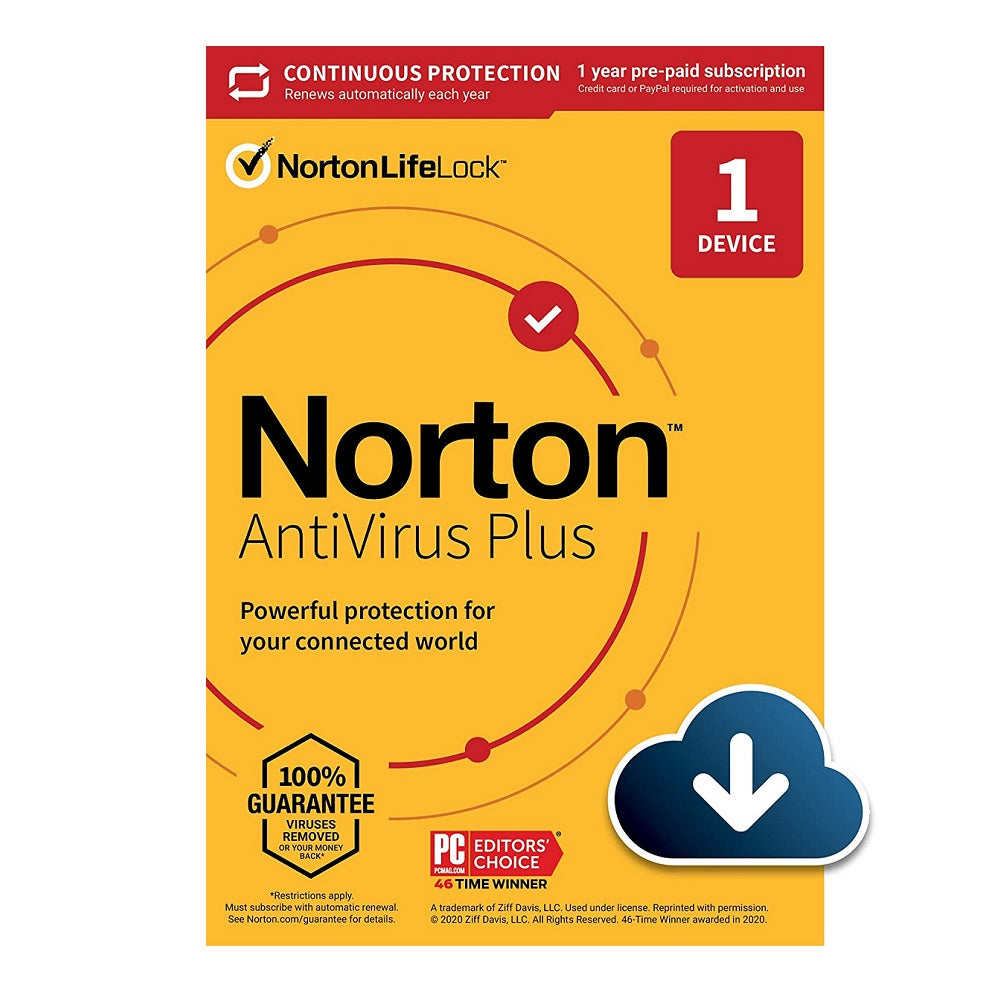Norton Anti Virus Plus 1 Device 1 Year Email Key (1x PC or Mac) (FREE SHIPPING via EMAIL)
Norton Anti Virus Plus 1 Device 1 Year Email Key (1x PC or Mac) (FREE SHIPPING via EMAIL) is backordered and will ship as soon as it is back in stock.
Couldn't load pickup availability
FREE POSTAGE!
FREE POSTAGE!
All Antivirus Software is Dealt with by Email.
Delivery and Shipping
Delivery and Shipping
We pride ourselves with picking and shipping the next day
Description
Description
Norton Anti Virus Plus 1 Device 1 Year digital license by email. No physical item. Suitable for new subscription or renewal. For 1x PC or Mac. Always the latest version and download from www.norton.com/setup
Download with your license at: www.norton.com/setup
NOTE: CREDIT CARD DETAILS REQUIRED BY NORTON FOR LICENSE ACTIVATION. NO CHARGES ARE TAKEN UNLESS RENEWAL.
To avoid auto-renewal, please cancel after activation:
Sign in to your Norton account.
On the My Account page, next to the subscription for which you want to cancel the renewal and the renewal charges, click Cancel Subscription Renewal.
Confirm your cancellation.
A Brief History of Antivirus Software
Antivirus software's history began in the 1970s with the first computer virus, "Creeper," leading to the development of early antivirus tools like "Reaper". Commercial antivirus software emerged in the 1980s, with companies like McAfee and Norton gaining prominence, and the 1990s saw the introduction of signature-based detection.
Key Milestones in Antivirus Software History:
1970s:
-1971: The "Creeper" virus, developed by Bob Thomas of BBN, is considered the first computer virus.
-1971: Ray Tomlinson developed "Reaper" to combat the Creeper virus.
1980s:
Commercial antivirus software begins to emerge, with companies like McAfee and Norton gaining prominence.
1990s:
Signature-based detection becomes a standard method for identifying and removing malware.
2000s:
Sophisticated threats like ransomware and phishing become more prevalent.
2010s:
Cloud-based solutions and AI-driven detection become more prominent.
2020s:
Antivirus software continues to evolve to combat new and sophisticated threats, with companies like Microsoft Defender, Norton 360, Bitdefender Antivirus, and Malwarebytes offering various solutions.
Payment & Security
Payment methods
Your payment information is processed securely. We do not store credit card details nor have access to your credit card information.
One View on Antivirus Software
General Disclaimer: Consider your needs carefully. Your computer is a very important possession. xdeal.com.au is not responsible for any loss of data, software issues, damaged property or personal injury. Use this site, videos, and any advice at own risk.



